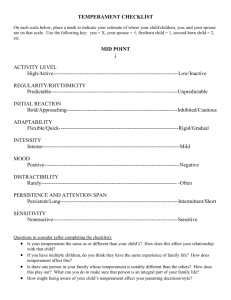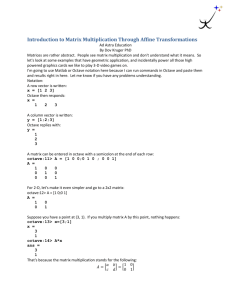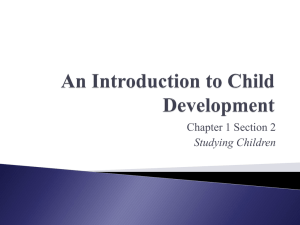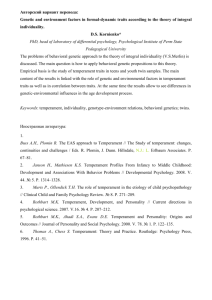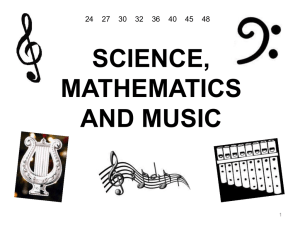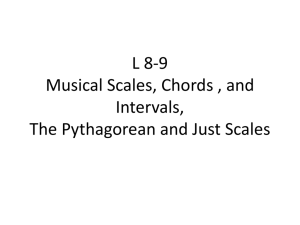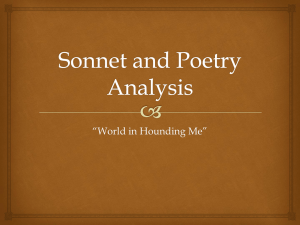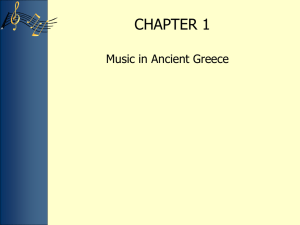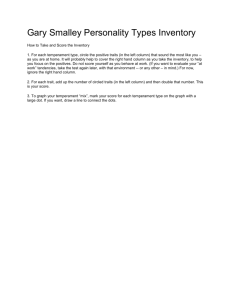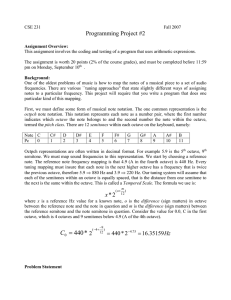hw16_solutions
advertisement
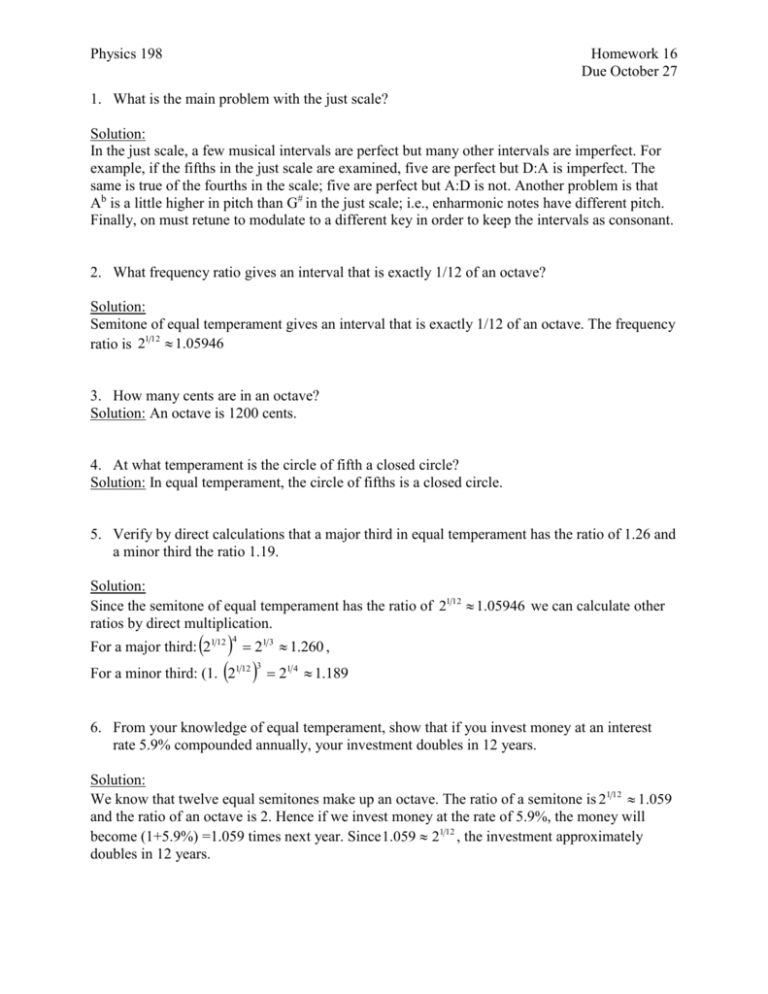
Physics 198 Homework 16 Due October 27 1. What is the main problem with the just scale? Solution: In the just scale, a few musical intervals are perfect but many other intervals are imperfect. For example, if the fifths in the just scale are examined, five are perfect but D:A is imperfect. The same is true of the fourths in the scale; five are perfect but A:D is not. Another problem is that Ab is a little higher in pitch than G# in the just scale; i.e., enharmonic notes have different pitch. Finally, on must retune to modulate to a different key in order to keep the intervals as consonant. 2. What frequency ratio gives an interval that is exactly 1/12 of an octave? Solution: Semitone of equal temperament gives an interval that is exactly 1/12 of an octave. The frequency ratio is 21 12 1.05946 3. How many cents are in an octave? Solution: An octave is 1200 cents. 4. At what temperament is the circle of fifth a closed circle? Solution: In equal temperament, the circle of fifths is a closed circle. 5. Verify by direct calculations that a major third in equal temperament has the ratio of 1.26 and a minor third the ratio 1.19. Solution: Since the semitone of equal temperament has the ratio of 21 12 1.05946 we can calculate other ratios by direct multiplication. 2 1.260 , For a minor third: (1. 2 2 1.189 For a major third: 21 12 4 1 12 3 13 14 6. From your knowledge of equal temperament, show that if you invest money at an interest rate 5.9% compounded annually, your investment doubles in 12 years. Solution: We know that twelve equal semitones make up an octave. The ratio of a semitone is 21 12 1.059 and the ratio of an octave is 2. Hence if we invest money at the rate of 5.9%, the money will become (1+5.9%) =1.059 times next year. Since 1.059 21 12 , the investment approximately doubles in 12 years.

